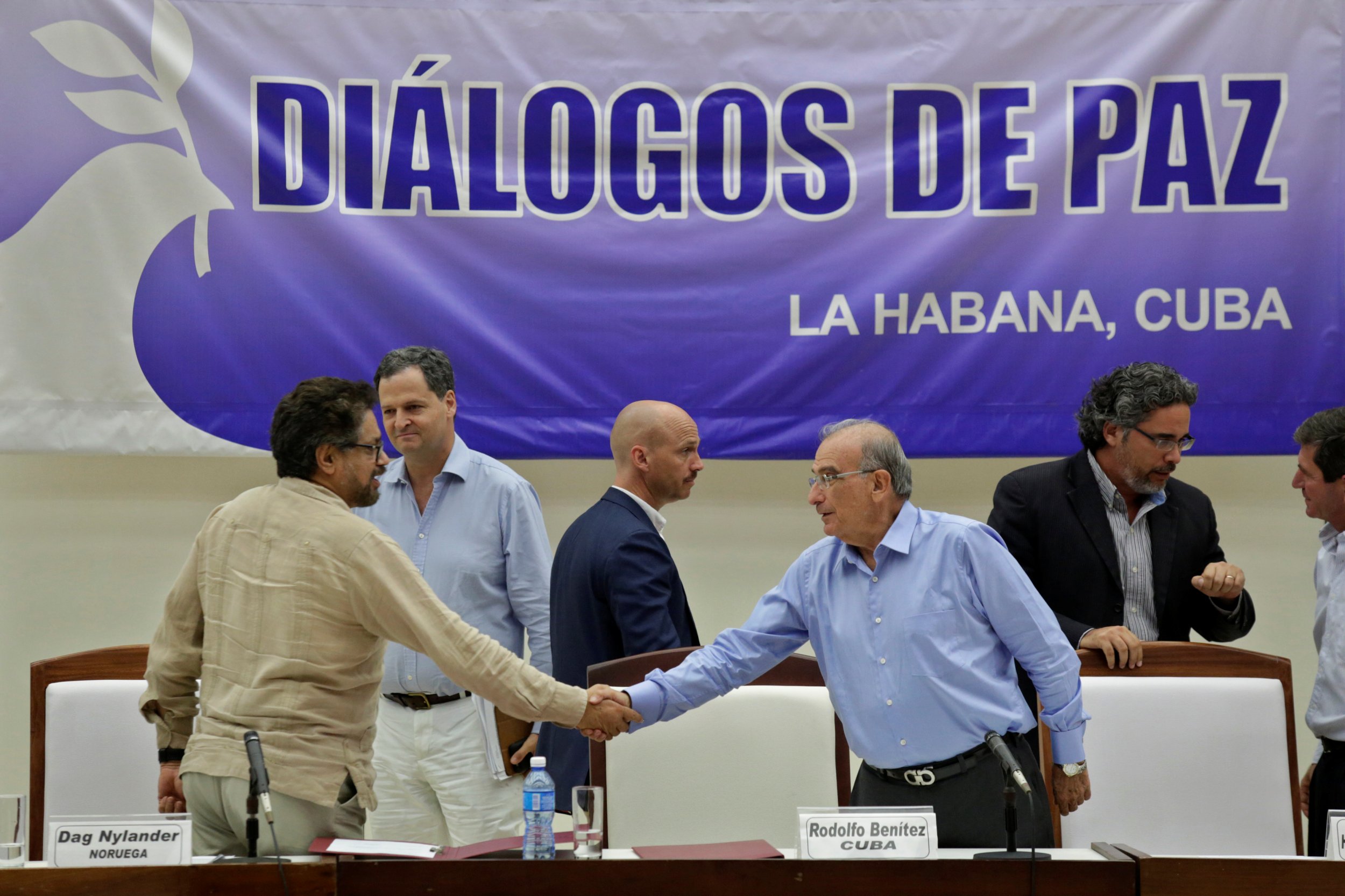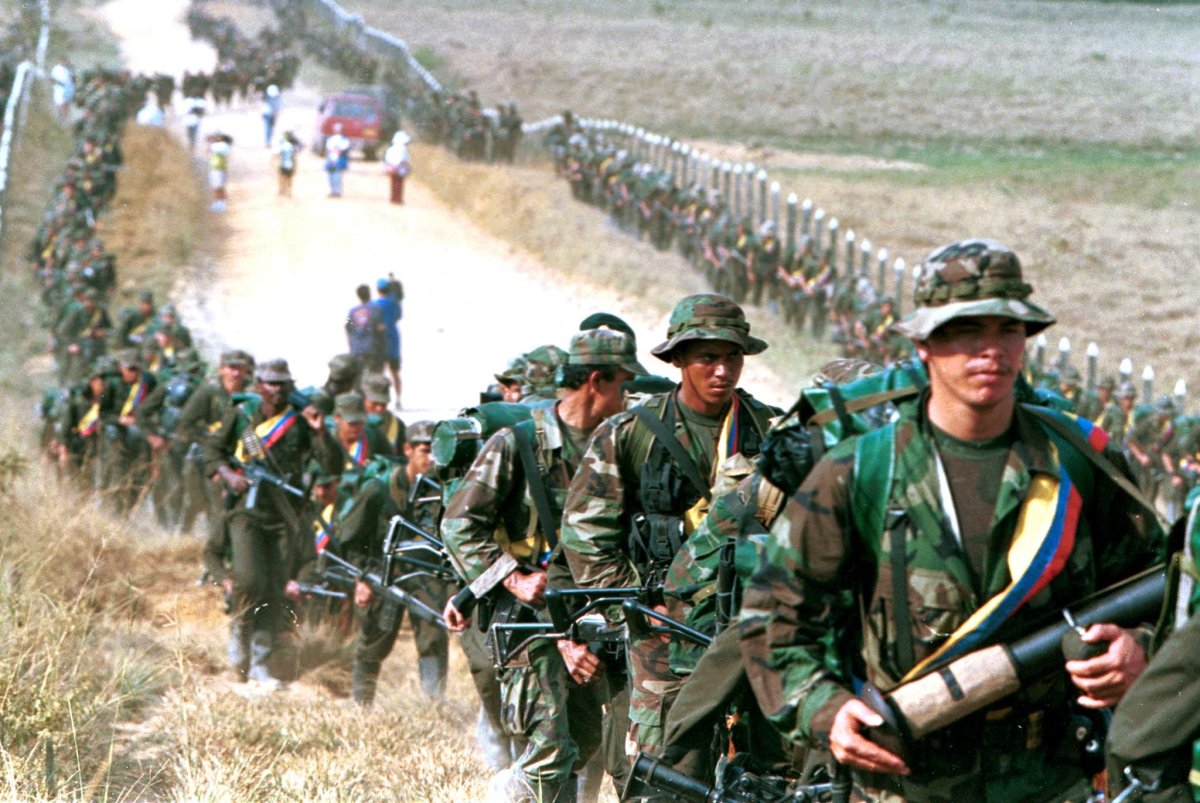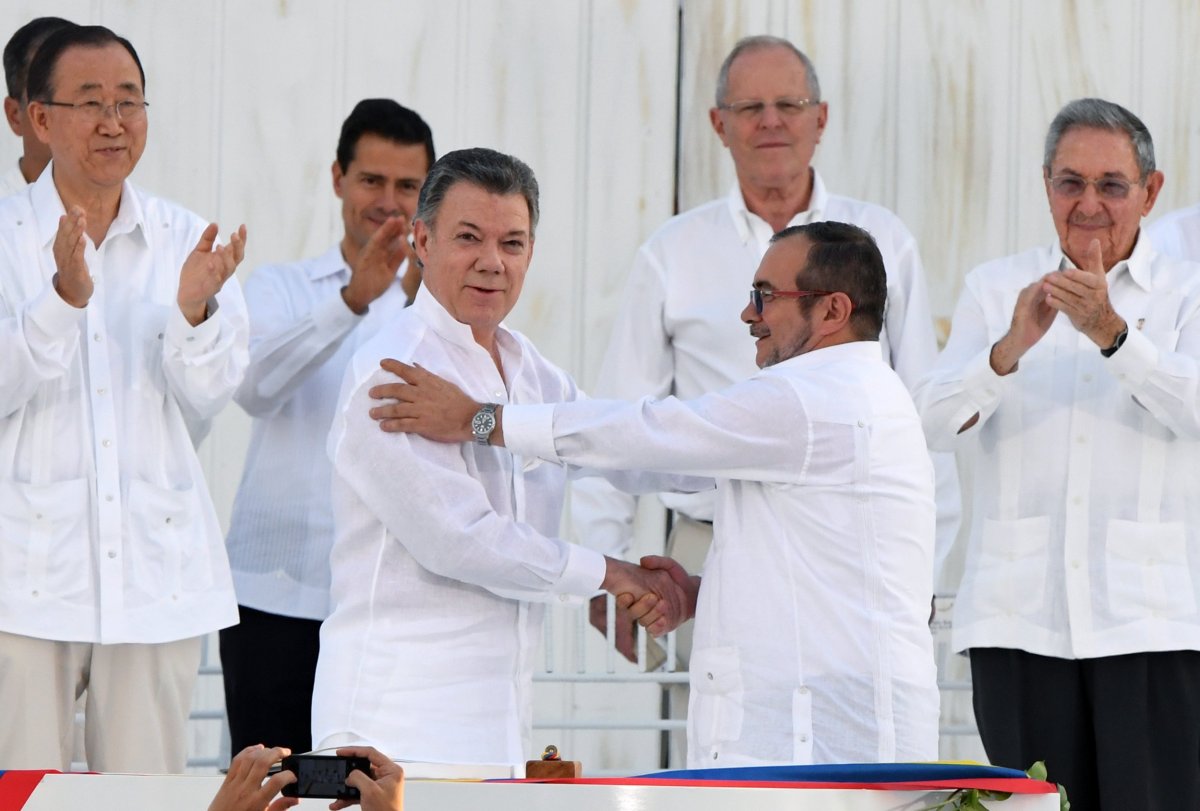
On November 24, 2016, the Revolutionary Armed Forces of Colombia, also known as FARC, and the Colombian government with President Juan Manuel Santos at the helm, ratified a peace agreement that ended a 52-year internal conflict—the longest in the Americas—that displaced more than 4 million people, killed 220,000 and disappeared 25,000 more.
The peace accord has produced considerable results 12 months later. More than 12,000 former combatants pledged to return to society, nearly 8,994 guns and other forms of weaponry were submitted to the United Nations, and the Red Cross received hundreds of child soldiers. Furthermore, death rate has drastically dropped from 3,000 casualties since the conflict peaked in 2002 to fewer than 100, and internal displacement has dwindled by 79 percent this year.
However, not all Colombians have welcomed the peace accord. On October 1, 2016, hundreds of thousands of them rejected the accord through a plebiscite, but an overhauled treaty was ultimately approved by congressional mandate weeks later. The new accord was not subject to popular vote, which sparked a widening polarization among citizens. Meanwhile, violence and drug production are still present in some areas of the country.

At least 188,000 hectares of Colombian land are still used for coca production—the highest since 1994—and 92 percent of cocaine samples from Colombia had been confiscated in the United States last year. The accord requires that FARC relinquish any involvement in drug trafficking, so it remains to be seen whether the treaty will have any long-term impact on the country's illicit trade.
Moreover, at least 186 social leaders and human rights advocates have been killed between January 2016 and July this year, and most of these killings occurred in areas where FARC operated, according to official numbers. Almost 500 local leaders have received death threats in the same areas where there has been a power vacuum that is being filled by organized crime and other guerrilla groups such as the National Liberation Army.
The accord has received further criticism after FARC—now a political movement—and its leader Timoleón "Timochenko" Jiménez announced last month that he would run for president in the 2018 elections. Critics wonder if FARC is really committed to going through a so-called Special Jurisdiction for Peace, a transitional justice stipulated in the accord, which seeks to unearth the truth about the conflict, investigate and put on trial former guerrilla members who have committed crimes.

The treaty has fueled a political brinksmanship between two of the country's most influential parties, such as the center right-leaning Democratic Center—spearheaded by former President Alvaro Uribe Velez who adamantly rejects the treaty—and the center left-leaning Green Alliance Party, which supports it. The Democratic Center argues that Santos "lied" to the population by saying that he would respect the results of the October 1 plebiscite. Instead, his administration let Congress approve the accord.
"Colombians have been fooled during the first year of the peace accord," María del Rosario Guerra de la Espriella, Colombian senator for the Democratic Center, told Newsweek. "Ever since the peace accord was submitted for approval in Congress it has benefitted FARC."
Guerra de la Espriella slammed the Colombian government after reports indicated that 55 percent of the 8,000 demobilized guerilla members have left the 22 concentration zones across the country, which were created to turn them into law-abiding citizens. "Where are they right now? I am deeply concerned about the relationship between demobilized guerrilla rank-and-file and FARC leaders, and I'm worried about the money FARC made [from illicit activities] that hasn't been given to the government," she said.
The Democratic Center has also rejected a key point in the accord: A comprehensive agrarian reform that would allow farmers to use uncultivated land. For some sectors of the population, rural development that favors farmers more than richer agroindustry landowners could lead to populism and left-leaning radical ideas. As a result, the Democratic Center has feared that Colombia will be ruled under "Castro-Chavismo" demagoguery, which many say has ruled Venezuela for almost two decades.
"We accept FARC's reintroduction to society, but we cannot accept the imposition of a 21st Century socialism in our country," Guerra de la Espriella added.
Green Alliance Senator Claudia López, who is running for president next year, has rejected the Democratic Center's stance on agrarian reform. "The [Democratic Center] represents views from the 19th Century, instead of creating productive lands," she told Newsweek. "The uribismo represents the landowner who is either an outlaw or a law-abiding person. All we want is a market-driven economy for agriculture."
López praised the peace accord for drastically reducing the number of casualties; nevertheless, she lashed out at the Santos administration. "I feel that FARC has been more compliant than the government itself," she said. "FARC has surrendered and handed over their weapons, whereas the government was supposed to submit legislative reforms regarding the treaty, but it won't be able to meet its November 30 deadline."
Lopez added that it was easier to disarm FARC than to combat corruption in Colombian politics, which she considers the country's greatest challenge ahead of the 2018 elections. "The Democratic Center will continue to reverberate the topic of FARC during the presidential debates, but corruption will be the main discussion," she said. "Now that peace is a reality, Colombia has a buoyant middle class that demands high-quality education, better services and a fair political process."
The peace accords' real impact is still uncertain. "If we only criticize what we're experiencing today and we just argue what is strictly stipulated in the treaty, there will be more dissatisfaction than tranquility," Sergio Guarín, director of the post-conflict and peacebuilding office at Bogotá-based think tank Fundación Ideas Para la Paz, told Newsweek. "Institutions are being strengthened in the medium term, so the accomplishments reached so far should not be measured by what's on paper—this must be seen as a tool to shore up the rule of law."
Despite negative perceptions over the treaty and the fear of a socialist rule in Colombia, Guarín said Colombians should not underestimate the importance of separation of powers. "Colombians should not undermine the capacity of the country's institutions to balance power among the three branches of government," he said. "At this moment, the peace process does not belong to the executive branch. It has been integrated across all institutions and it is being safeguarded under a legal framework."
The Colombian peace process started in 2012 and took place in Oslo, Norway, and Havana, Cuba. The process earned Santos a Nobel Peace Prize last year.
Uncommon Knowledge
Newsweek is committed to challenging conventional wisdom and finding connections in the search for common ground.
Newsweek is committed to challenging conventional wisdom and finding connections in the search for common ground.
About the writer
Robert Valencia is deputy world editor for Newsweek. Robert has covered issues related to drug policy, human rights, U.S. presidential ... Read more
To read how Newsweek uses AI as a newsroom tool, Click here.








